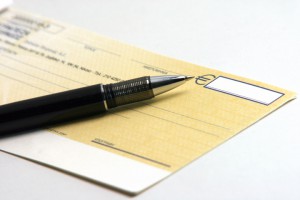Family Lawyers Should Know Forensic Accountants’ Ethics and Standards
- At June 18, 2012
- By Miles Mason
- In Forensic Accounting
 0
0
What family lawyers should know about forensic accountants’ ethics and standards to prepare for cross-examination in divorce cases.
Experienced forensic accountants will tell you that some of the most devastating cross-examinations can be about ethics and standards. Accountants’ ethical guidelines and standards are rules created to protect the public and clients. For the accounting profession, it’s all about the public trust. Zealous advocacy plays no role. When a forensic accountant deviates from ethical rules and standards, that violation can be exploited in the courtroom. When that violation relates to lack of independence, conflict of interest, or lack of objectivity, the results can be crushing. Careers have been ended for less.
The American Institute of Certified Public Accountants (AICPA) promulgates standards and ethical rules. The National Association of Certified Valuation Analysts (NACVA) promulgates rules too, but most track the AICPA’s. Ethics and standards should be cohesive and consistent for all CPAs. But auditing is different from tax preparation, which is different from business consulting, which is different from business valuation and forensic accounting. Differentiating unique ethics and standards for each of these roles in all possible circumstances may well be impossible.
Forensic accountant s fear being labeled with a very derogatory name—one usually applied to people who accept money in exchange for intimacy. A term of art not defined by the AICPA’s Code of Professional Conduct, this name describes the expert witness who will accept money in exchange for particular testimony. Are some CPAs guilty of this? Sure. Does this happen often? Probably not. Do some experts get labeled this name unfairly? Likely. Litigation can be a brutal, bare-knuckle, full-contact, mixed-martial-arts arena. What do forensic accountants do to avoid such ignominious name-calling being cast their way? They follow the ethical rules and standards and don’t get close to ethical lines. Experienced CPAs will tell you that it’s the getting close to the lines that leads to trouble. Crossing them is not necessarily required.
What happens to a CPA who breaks the rules? He can be disciplined by his particular state’s board of accountancy. The CPA’s license can get yanked, or the CPA can receive public discipline. Does this really happen? Not often. In general, many state boards of accountancy do not want to get involved in litigated matters. For forensic accountants, it’s much more likely that a CPA will have his testimony discounted in court. On cross-examination, the CPA’s client’s case can crumble as a result of a conflict of interest or proof of a bias. From there, it’s up to the legal establishment to banish the offending CPA by spreading the word that the expert witness cost a client a case because ethical rules or standards weren’t followed. Also, at some point, word will get around among the remaining experts in the market. Regardless, some lawyers will seek out experts who will accept an expert witness fee in exchange for particular testimony. At the end of the day, what’s important to understand is that family lawyers who know CPA’s ethics and standards can mount much more effective cross-examinations than family lawyers who don’t.
This blog post is an excerpt from The Forensic Accounting Deskbook: A Practical Guide to Financial Investigation and Analysis for Family Lawyers. Reprinted by permission. Copyright © 2011 American Bar Association. All rights reserved. No part of this publication may be reproduced, stored in a retrieval system, or transmitted in any form or by any means, electronic, mechanical, photocopying, recording, or otherwise, without the prior written permission of the publisher. Footnotes may be omitted from the original text.
Miles Mason, Sr., JD, CPA practices family law exclusively and is founder of the Miles Mason Family Law Group, PLC, in Memphis, Tennessee. Miles is the author of The Forensic Accounting Deskbook: A Practical Guide to Financial Investigation and Analysis for Family Lawyers, published by the American Bar Association.
The Forensic Accounting Deskbook teaches lawyers, forensic accountants, and divorcing spouses how to uncover hidden income and discover hidden assets in complex divorces involving business owners and highly compensated corporate executives. The author, Miles Mason, Sr. has presented numerous seminars on divorce, family law, forensic accounting and business valuations at national and regional conferences for judges, divorce and family lawyers, forensic accountants, and business valuation experts. For a complete listing of speaking presentations, publications, and more of his professional biography, see Miles Mason, Sr.’s professional biography.










